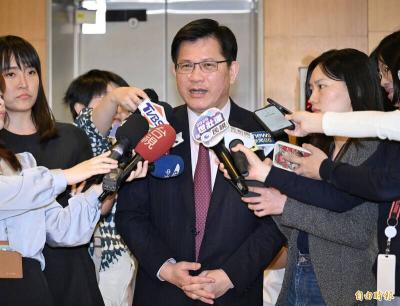Chinese Premier Wen Jiabao (溫家寶) said yesterday that a free-trade-style deal with Taiwan would spare the nation’s much smaller economy, as China tries to calm fears the agreement could lead to a flood of cheap imports.
Wen, speaking at his annual news conference, said the proposed economic cooperation framework agreement (ECFA) would hurt neither Taiwan’s farmers nor small businesses.
“I believe that in negotiating this agreement, we need to consider the size of the economy and trade conditions as well as the interests of both sides,” he said. “We need to keep in mind Taiwan’s small businesses and ordinary people, and the interests of farmers in Taiwan.”
Taiwan’s stock and currency markets have gained on signs that, despite decades of hostility, export-reliant Taiwan is moving closer to economic powerhouse China.
“We are working to ensure that the people of Taiwan benefit from tariff conditions and early harvest programs,” Wen said.
“Relevant arrangements will also be made to help reassure farmers in Taiwan,” he said.
Wen said he was optimistic about the new trade deal.
“Negotiations are complex, but differences between brothers cannot sever blood ties. Problems can always be solved,” he said.
“On ECFA, we’ve said before that it will not involve opening the market to Chinese agricultural products,” Deputy Mainland Affairs Council Minister Liu Te-shun (劉德勳) said when asked about Wen’s remarks. “In that sense ... we’re on the same page.”
The Democratic Progressive Party (DPP) says the pact could flood Taiwan with cheap Chinese goods.
“The Chinese side is trying to help [President] Ma Ying-jeou (馬英九) so that the DPP cannot play this card against the KMT again,” said George Tsai (蔡瑋), a political scientist at the Chinese Culture University.
“They are aware that the DPP is playing this card in the local elections,” he said.
Meanwhile, Wen reiterated his hope to visit Taiwan one day.
“I still would very much like to visit Taiwan one day,” he said.

Taiwan would welcome the return of Honduras as a diplomatic ally if its next president decides to make such a move, Minister of Foreign Affairs Lin Chia-lung (林佳龍) said yesterday. “Of course, we would welcome Honduras if they want to restore diplomatic ties with Taiwan after their elections,” Lin said at a meeting of the legislature’s Foreign Affairs and National Defense Committee, when asked to comment on statements made by two of the three Honduran presidential candidates during the presidential campaign in the Central American country. Taiwan is paying close attention to the region as a whole in the wake of a

Chinese Nationalist Party (KMT) Chairman Eric Chu (朱立倫), spokeswoman Yang Chih-yu (楊智伃) and Legislator Hsieh Lung-chieh (謝龍介) would be summoned by police for questioning for leading an illegal assembly on Thursday evening last week, Minister of the Interior Liu Shyh-fang (劉世芳) said today. The three KMT officials led an assembly outside the Taipei City Prosecutors’ Office, a restricted area where public assembly is not allowed, protesting the questioning of several KMT staff and searches of KMT headquarters and offices in a recall petition forgery case. Chu, Yang and Hsieh are all suspected of contravening the Assembly and Parade Act (集會遊行法) by holding

President William Lai (賴清德) has appointed former vice president Chen Chien-jen (陳建仁) to attend the late Pope Francis’ funeral at the Vatican City on Saturday on his behalf, the Ministry of Foreign Affairs said today. The Holy See announced Francis’ funeral would take place on Saturday at 10am in St Peter’s Square. The ministry expressed condolences over Francis’ passing and said that Chen would represent Taiwan at the funeral and offer condolences in person. Taiwan and the Vatican have a long-standing and close diplomatic relationship, the ministry said. Both sides agreed to have Chen represent Taiwan at the funeral, given his Catholic identity and

Taiwan would welcome the return of Honduras as a diplomatic ally if the next president of that country decides to make such a move, Minister of Foreign Affairs Lin Chia-lung (林佳龍) said today. “We would welcome Honduras if they want to restore diplomatic ties with Taiwan after their elections,” Lin said during a legislative hearing. At the same time, Taiwan is paying close attention to the Central American region as a whole, in the wake of a visit there earlier this year by US Secretary of State Marco Rubio, Lin said. Rubio visited Panama, El Salvador, Costa Rica and Guatemala, during which he